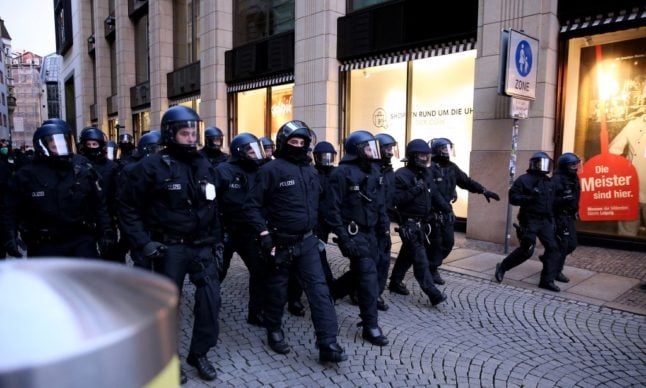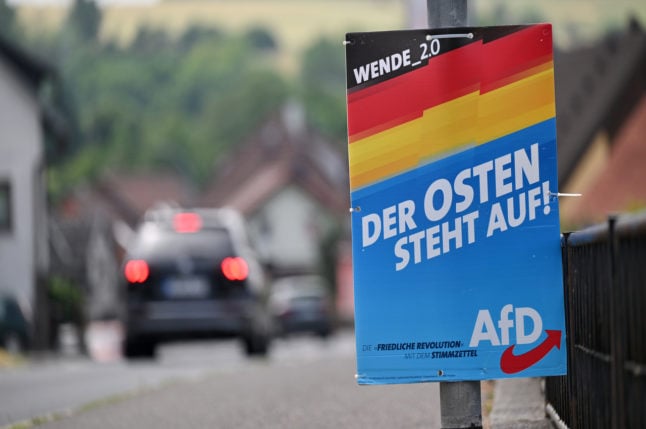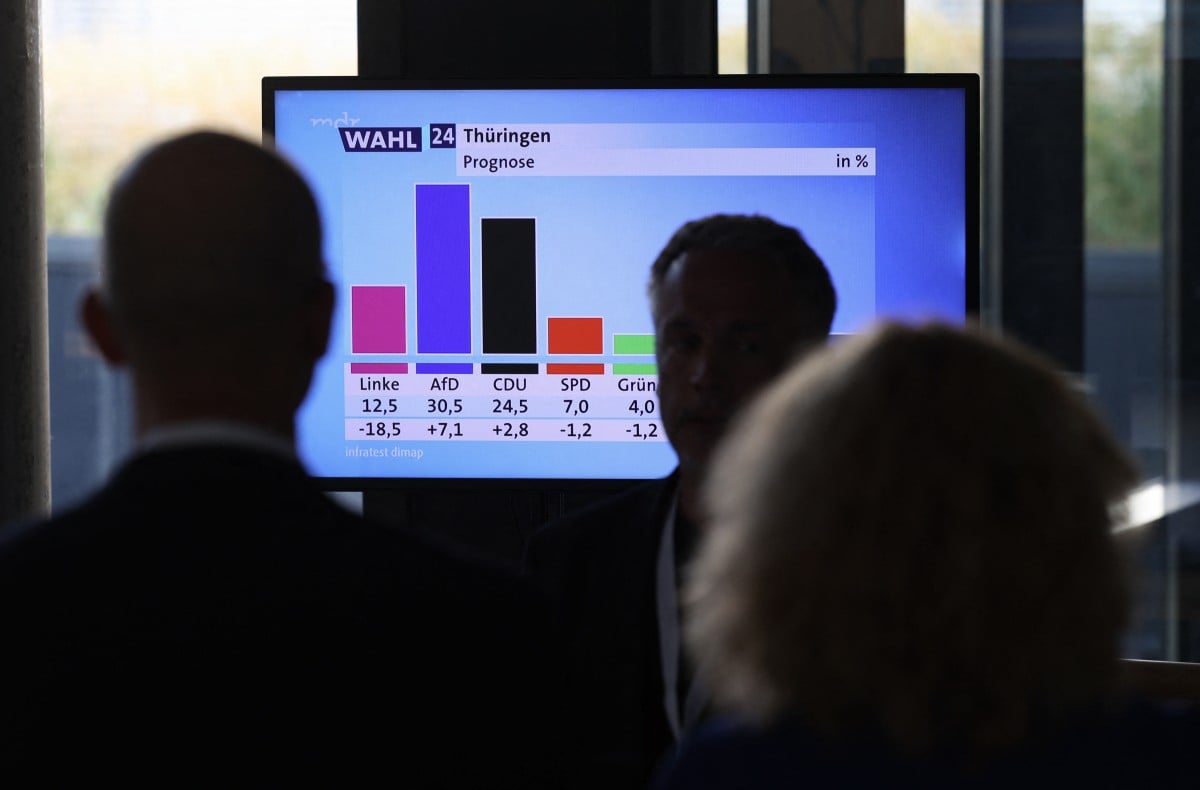Protesters set up road blocks, started fires and threw projectiles at security forces from rooftops and on the streets to protest prison terms handed out to four far-left activists, police said.
At least five police officers and a reporter were injured during the protest, while three out of some 800 demonstrators were arrested.
“We have launched inquires into public disorder, dangerous injuries, assaults on police officers, damage to property and the illegal use of explosives,” Leipzig police tweeted on Saturday.
The unrest came after a court in Dresden, Saxony, on Wednesday sentenced a 28-year-old student identified in German media as Lina E. and three other far-left militants, known as Lennart A., Jannis R. and Jonathan M., aged between 28 and 37, to several years in prison.
Lina E. and the other defendants were found guilty of violent attacks on neo-Nazis and alleged far-right supporters between 2018 and 2020.
In particular, the group was found responsible for six attacks that injured a total of 13 people, with two suffering life-threatening injuries.
Since 2020, when Lina E. was remanded in custody, the slogan “Free Lina” has featured regularly at left-wing protests, with graffiti dedicated to the student now being a regular sighting on buildings in Leipzig, Hamburg and Berlin.
At the time of writing, it appeared that protests would continue on Saturday as far-left activists called on social media for a national day of action in Leipzig despite a ban on demonstrations issued by local authorities.
Leipzig police were reportedly “preparing for potential violence” as the available information “suggests that protesters will still gather in Leipzig on Saturday”, a police spokesperson told CNN on Friday.
At the time of writing, there was a possibility that further protests might be held in other German cities, including Bremen, Hanover, Hamburg and Berlin.




 Please whitelist us to continue reading.
Please whitelist us to continue reading.
Member comments